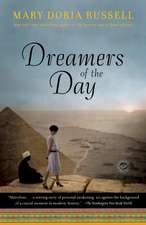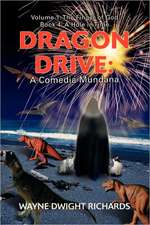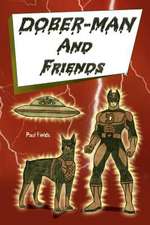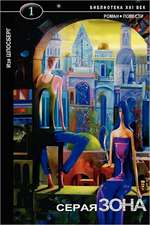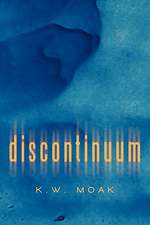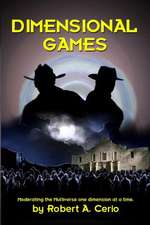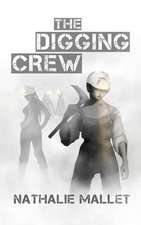Children of God: Ballantine Reader's Circle
Autor Mary Doria Russellen Limba Engleză Paperback – 31 ian 1999 – vârsta de la 14 până la 18 ani
Vezi toate premiile Carte premiată
Hugo Award (1999)
The only member of the original mission to the planet Rakhat to return to Earth, Father Emilio Sandoz has barely begun to recover from his ordeal when the So-ciety of Jesus calls upon him for help in preparing for another mission to Alpha Centauri. Despite his objections and fear, he cannot escape his past or the future.
Old friends, new discoveries and difficult questions await Emilio as he struggles for inner peace and understanding in a moral universe whose boundaries now extend beyond the solar system and whose future lies with children born in a faraway place.
Strikingly original, richly plotted, replete with memorable characters and filled with humanity and humor, Chil-dren of God is an unforgettable and uplifting novel that is a potent successor to The Sparrow and a startlingly imaginative adventure for newcomers to Mary Doria Russell's special literary magic.
From the Hardcover edition.
| Toate formatele și edițiile | Preț | Express |
|---|---|---|
| Paperback (2) | 102.38 lei 3-5 săpt. | +47.11 lei 6-12 zile |
| BALLANTINE BOOKS – 31 ian 1999 | 102.38 lei 3-5 săpt. | +47.11 lei 6-12 zile |
| Transworld Publishers Ltd – 8 dec 2009 | 108.06 lei 3-5 săpt. | +15.64 lei 6-12 zile |
Din seria Ballantine Reader's Circle
-
 Preț: 97.74 lei
Preț: 97.74 lei -
 Preț: 120.15 lei
Preț: 120.15 lei -
 Preț: 107.27 lei
Preț: 107.27 lei -
 Preț: 121.12 lei
Preț: 121.12 lei -
 Preț: 126.98 lei
Preț: 126.98 lei -
 Preț: 113.15 lei
Preț: 113.15 lei -
 Preț: 115.32 lei
Preț: 115.32 lei -
 Preț: 107.17 lei
Preț: 107.17 lei -
 Preț: 129.37 lei
Preț: 129.37 lei -
 Preț: 114.71 lei
Preț: 114.71 lei -
 Preț: 65.81 lei
Preț: 65.81 lei -
 Preț: 116.57 lei
Preț: 116.57 lei -
 Preț: 91.96 lei
Preț: 91.96 lei -
 Preț: 90.35 lei
Preț: 90.35 lei -
 Preț: 120.71 lei
Preț: 120.71 lei -
 Preț: 116.64 lei
Preț: 116.64 lei -
 Preț: 139.70 lei
Preț: 139.70 lei -
 Preț: 110.76 lei
Preț: 110.76 lei -
 Preț: 127.70 lei
Preț: 127.70 lei -
 Preț: 116.55 lei
Preț: 116.55 lei -
 Preț: 112.52 lei
Preț: 112.52 lei -
 Preț: 109.71 lei
Preț: 109.71 lei -
 Preț: 111.51 lei
Preț: 111.51 lei -
 Preț: 111.17 lei
Preț: 111.17 lei -
 Preț: 121.22 lei
Preț: 121.22 lei -
 Preț: 89.48 lei
Preț: 89.48 lei -
 Preț: 106.23 lei
Preț: 106.23 lei -
 Preț: 123.90 lei
Preț: 123.90 lei -
 Preț: 118.73 lei
Preț: 118.73 lei -
 Preț: 126.88 lei
Preț: 126.88 lei -
 Preț: 112.64 lei
Preț: 112.64 lei -
 Preț: 110.96 lei
Preț: 110.96 lei -
 Preț: 128.86 lei
Preț: 128.86 lei -
 Preț: 124.72 lei
Preț: 124.72 lei -
 Preț: 128.86 lei
Preț: 128.86 lei -
 Preț: 122.76 lei
Preț: 122.76 lei -
 Preț: 122.64 lei
Preț: 122.64 lei -
 Preț: 133.06 lei
Preț: 133.06 lei -
 Preț: 132.06 lei
Preț: 132.06 lei -
 Preț: 109.73 lei
Preț: 109.73 lei -
 Preț: 93.82 lei
Preț: 93.82 lei -
 Preț: 101.06 lei
Preț: 101.06 lei -
 Preț: 85.08 lei
Preț: 85.08 lei -
 Preț: 85.13 lei
Preț: 85.13 lei -
 Preț: 79.16 lei
Preț: 79.16 lei -
 Preț: 88.39 lei
Preț: 88.39 lei -
 Preț: 99.83 lei
Preț: 99.83 lei -
 Preț: 92.83 lei
Preț: 92.83 lei -
 Preț: 87.43 lei
Preț: 87.43 lei
Preț: 102.38 lei
Nou
Puncte Express: 154
Preț estimativ în valută:
19.59€ • 20.56$ • 16.26£
19.59€ • 20.56$ • 16.26£
Carte disponibilă
Livrare economică 20 martie-03 aprilie
Livrare express 05-11 martie pentru 57.10 lei
Preluare comenzi: 021 569.72.76
Specificații
ISBN-13: 9780449004838
ISBN-10: 044900483X
Pagini: 464
Dimensiuni: 135 x 207 x 21 mm
Greutate: 0.32 kg
Ediția:Fawcett.
Editura: BALLANTINE BOOKS
Seria Ballantine Reader's Circle
Locul publicării:New York, NY
ISBN-10: 044900483X
Pagini: 464
Dimensiuni: 135 x 207 x 21 mm
Greutate: 0.32 kg
Ediția:Fawcett.
Editura: BALLANTINE BOOKS
Seria Ballantine Reader's Circle
Locul publicării:New York, NY
Notă biografică
Trained as a paleoanthropologist and the author of scientific articles on subjects ranging from bone biology to cannibalism, Mary Doria Russell received her B.A. in cultural anthropology from the University of Illinois, her M.A. in social anthropology from Northeastern Univer-sity and her doctorate in biological anthropology from the University of Michigan. She lives in Cleveland, Ohio, with her husband and their son and is at work on her third novel.
A Selection of the Book-of-the-Month Club
From the Hardcover edition.
A Selection of the Book-of-the-Month Club
From the Hardcover edition.
Extras
Prelude
Sweating and nauseated, father Emilio Sandoz sat on the edge of his bed with his head in what was left of his hands.
Many things had turned out to be more difficult than he'd expected. Losing his mind, for example. Or dying. How can I still be alive? he wondered, not so much with philosophical curiosity as with profound irritation at the physical stamina and sheer bad luck that had conspired to keep him breathing, when all he'd wanted was death. "Something's got to go," he whispered, alone in the night. "My sanity or my soul . . ."
He stood and began to pace, wrecked hands tucked under his armpits to keep the fingers from being jarred as he moved. Unable to drive nightmare images away in the darkness, he touched the lights on with an elbow so he could see clearly the real things in front of him: a bed, linens tangled and sweat-soaked; a wooden chair; a small, plain chest of drawers. Five steps, turn, five steps back. Almost the exact size of the cell on Rakhat--
There was a knock at the door and he heard Brother Edward Behr, whose bedroom was nearby and who was always alert for these midnight walks. "Are you all right, Father?" Edward asked quietly.
Am I all right? Sandoz wanted to cry. Jesus! I'm scared and I'm crippled and everybody I ever loved is dead--
But what Edward Behr heard as he stood in the hallway just beyond Sandoz's door was, "I'm fine, Ed. Just restless. Everything's fine."
Brother Edward sighed, unsurprised. He had cared for Emilio Sandoz, night and day, for almost a year. Tended his ruined body, prayed for him, watching appalled and frightened as the priest fought his way back from utter helplessness to a fragile self-respect. So, even as Edward padded down the hall to check on Sandoz tonight, he suspected that this would be the soft-voiced reply to a pointless question.
"It's not over, you know," Brother Edward had warned a few days earlier, when Emilio had at long last spoken the unspeakable. "You don't get over something like that all at once." And Emilio had agreed that this was true.
Returning to his own bed, Edward punched up the pillow and slid under the covers, listening as the pacing resumed. It's one thing to know the truth, he thought. To live with it is altogether something else.
In the room directly beneath sandoz's, the father general of the Society of Jesus had also heard the sudden, gasping cry that announced an arrival of the incubus who ruled Emilio's nights. Unlike Brother Edward, Vincenzo Giuliani no longer rose to offer Sandoz unwelcomed help, but he could see in memory the initial look of bewildered terror, the silent struggle to regain control.
For months, while presiding over the Society's inquiry into the failure of the first Jesuit mission to Rakhat, Vincenzo Giuliani had been certain that if Emilio Sandoz were brought to speak of what had happened on that alien world, the matter could be resolved and Emilio would find some peace. The Father General was both administrator and priest; he had believed it was necessary--for the Society of Jesus and for Sandoz himself--to face facts. And so, by methods direct and indirect, by means gentle and brutal, both alone and aided by others, he had taken Emilio Sandoz to the moment when truth could free him.
Sandoz had fought them every step of the way: no priest, no matter how desperate, wishes to undermine another's faith. But Vincenzo Giuliani had been serenely confident that he could analyze error and correct it, understand failure and forgive it, hear sin and absolve it.
What he had been unprepared for was innocence.
"Do you know what I thought, just before I was used the first time? I am in God's hands," Emilio had said, when his resistance finally shattered on a golden August afternoon. "I loved God and I trusted in His love. Amusing, isn't it. I laid down all my defenses. I had nothing between me and what happened but the love of God. And I was raped. I was naked before God and I was raped."
What is it in humans that makes us so eager to believe ill of one another? Giuliani asked himself that night. What makes us so hungry for it? Failed idealism, he suspected. We disappoint ourselves and then look around for other failures to convince ourselves: it's not just me.
Emilio Sandoz was not sinless; indeed, he held himself guilty of a great deal, and yet . . . "If I was led by God to love God, step by step, as it seemed, if I accept that the beauty and the rapture were real and true, then the rest of it was God's will too and that, gentlemen, is cause for bitterness," Sandoz had told them. "But if I am simply a deluded ape who took a lot of old folktales far too seriously, then I brought all this on myself and my companions. The problem with atheism, I find, under these circumstances, is that I have no one to despise but myself. If, however, I choose to believe that God is vicious, then at least I have the solace of hating God."
If Sandoz is deluded, thought Vincenzo Giuliani as the pacing above him went on and on, what am I? And if he is not, what is God?
Chapter One
Naples
September 2060
Celestina Giuliani learned the word "slander" at her cousin's baptism. That is what she remembered about the party, mostly, aside from the man who cried.
The church was nice, and she liked the singing, but the baby got to wear Celestina's dress, which wasn't fair. No one had asked Celestina's permission, even though she wasn't supposed to take things without asking. Mamma explained that all the Giuliani babies wore this dress when they were baptized and pointed out the hem where Celestina's name was embroidered. "See, cara? There is your name and your papa's and Auntie Carmella's and your cousins'--Roberto, Anamaria, Stefano. Now it's the new baby's turn."
Celestina was not in a mood to be reasoned with. That baby looks like Grandpa in a bride dress, she decided grumpily.
Bored with the ceremony, Celestina began to swing her arms, head down, watching her skirt swirl from side to side for a while, sneaking a look now and then at the man with the machines on his hands, standing by himself in the corner. "He's a priest--like Grandpa Giuliani's American cousin Don Vincenzo," Mamma had explained to her before they left for the church that morning. "He's been sick a long time, and his hands don't work very well, so he uses machines to help his fingers move. Don't stare, carissima."
Celestina didn't stare. She did, however, peek fairly often.
The man wasn't paying attention to the baby like everyone else and one time when she peeked, he saw her. The machines were scary, but the man wasn't. Most grown-ups smiled with their faces but their eyes told you they wanted you to go and play. The man with the machines didn't smile, but his eyes did.
The baby fussed and fussed, and then Celestina smelled the caca. "Mamma!" she cried, horrified. "That baby--"
"Hush, cara!" her mother whispered loudly, and all the grown-ups laughed, even Don Vincenzo, who wore a long black dress like the man with the machines and was pouring water on the baby.
Finally, it was over and they all left the dark church and walked out into the sunshine. "But Mamma, the baby went!" Celestina insisted, as they came down the stairs and waited for the chauffeur to bring the car around. "Right in my dress! It'll be all dirty!"
"Celestina," her mother reproved, "you yourself once did such things! The baby wears diapers, just as you did."
Celestina's mouth dropped open. All around her, grown-ups were laughing, except for the man with the machines, who stopped next to her and dropped to her level, his face a mirror of her own stunned outrage. "This is slander!" she cried, repeating what he had whispered to her.
"A monstrous calumny!" he confirmed indignantly, standing again, and if Celestina did not understand any of the words, she knew that he was taking her side against the grown-ups who were laughing.
They all went to Auntie Carmella's house after that. Celestina ate biscotti and got Uncle Paolo to push her on the swing and had soda, which was a treat because it wouldn't make her bones strong, so she could only have it at parties. She considered playing with her cousins, but no one was her age, and Anamaria always wanted to be the mamma and Celestina had to be the baby, and that was boring. So she tried dancing in the middle of the kitchen until Gramma told her she was pretty and Mamma told her to go visit the guinea pigs.
When she got cranky, Mamma took her to the back bedroom, and sat with her, humming for a while. Celestina was almost asleep when her mother reached for a tissue and blew her nose.
"Mamma? Why didn't Papa come today?"
"He was busy, cara," Gina Giuliani told her daughter. "Go to sleep."
The good-byes woke her: cousins and aunts and uncles and grandparents and family friends, calling out ciaos and buona fortunas to the new baby and his parents. Celestina got up and took herself to the potty, which reminded her of slander, and then moved toward the loggia, wondering if she would get to take some balloons home. Stefano was making a fuss, yelling and crying. "I know, I know," Auntie Carmella was saying. "It's hard to say good-bye to everyone after such a nice time, but the party's ending now." Uncle Paolo simply scooped Stefano up, smiling but brooking no nonsense.
Amused by the tantrum and indulgent, none of the adults noticed Celestina standing in the doorway. Her mother was helping Auntie Carmella clear up the dishes. Her grandparents were out in the yard saying good-bye to the guests. Everyone else was paying attention to Stefano, screaming and struggling manfully, but helpless in the arms of his father, who carried him off, apologizing for the noise. Only Celestina noticed Don Vincenzo's face change. That was when she looked at the man with the machines on his hands and saw that he was crying.
Celestina had seen her mother cry, but she didn't know that men cried, too. It frightened her because it was strange, and because she was hungry, and because she liked the man who took her side, and because he didn't cry like anyone else she knew--eyes open, tears slipping down a still face.
Car doors slammed and Celestina heard the crunch of tires on gravel, just as her mother looked up from the table. Gina's own smile faded when she followed her daughter's gaze. Glancing in the direction of the two priests, Gina spoke to her sister-in-law in a low voice. Nodding, Carmella went to Don Vincenzo's side on her way to the kitchen with a stack of dishes. "The bedroom at the end of the hall, perhaps?" she suggested. "No one will disturb you there."
Celestina ducked out of the way as Don Vincenzo took the crying man by the arm, steering him through the loggia doorway and toward Carmella's room. "It was like that?" Celestina heard Don Vincenzo ask as they passed her. "They were amused when you struggled?"
Celestina followed them, embroidered anklets making whispers of her footsteps, and peeped through the little space where the door wasn't quite closed. The man with the machines was sitting in a chair in the corner. Don Vincenzo stood nearby, not saying anything, looking out the window toward Cece's pen. That's mean, Celestina thought. Don Vincenzo is mean! She hated it when she cried and no one paid attention because they said she was being silly.
The man saw her as she stepped into the bedroom, and he wiped his face on his sleeves. "What's the matter?" she asked, coming closer. "Why are you crying?"
Don Vincenzo started to say something, but the man shook his head and said, "It's nothing, cara. Only: I was remembering something--something bad that happened to me."
"What happened?"
"Some . . . men hurt me. It was a long time ago," he assured her as her eyes grew round, afraid the bad men were still in the house. "It was when you were very small, but sometimes I remember it."
"Did anyone kiss you?"
"Mi scuzi?" He blinked when she said it, and Don Vincenzo stood very straight for a moment.
"To make it better?" she said.
The man with the machines smiled with very soft eyes. "No, cara. No one kissed it better."
"I could."
"That would be very nice," he said in a serious voice. "I think I could use a kiss."
She leaned forward and kissed his cheek. Her cousin Roberto, who was nine, said kissing was stupid, but Celestina knew better. "This is a new dress," she told the man. "I got chocolate on it."
"It's still very pretty. So are you."
"Cece had babies. Want to see them?"
The man looked up at Don Vincenzo, who explained, "Cece is a guinea pig. Having babies is what guinea pigs do."
"Ah. Si, cara. I'd like that."
He stood, and she went to take his hand so she could bring him outside, but remembered about the machines. "What happened to your hands?" she asked, pulling him along by the sleeve.
"It was a sort of accident, cara. Don't worry. It can't happen to you."
"Does it hurt?" Vincenzo Giuliani heard the child ask, as she led Emilio Sandoz down the hall toward a door to the backyard.
"Sometimes," Sandoz said simply. "Not today."
Their voices were lost to him after he heard the back door bang shut. Vincenzo Giuliani stepped to the window, listening to the late afternoon buzz of cicadas, and watched Celestina drag Emilio to the guinea-pig pen. The child's lace-pantied bottom suddenly upended as she leaned over the wire enclosure to grab a baby for Emilio, who sat smiling on the ground, black-and-silver hair spilling forward over high Taino cheekbones as he admired the little animal Celestina dumped in his lap.
It had taken four priests eight months of relentless pressure to get Emilio Sandoz to reveal what Celestina had learned in two minutes. Evidently, the Father General observed wryly, the best man for the job can sometimes be a four-year-old girl.
And he wished that Edward Behr had stayed to see this.
Brother Edward was at that moment in his room in the jesuits' Neapolitan retreat house some four kilometers away, still astounded that the Father General had chosen a baptism as the occasion for Emilio Sandoz's first venture out of seclusion.
"You're joking!" Edward had cried that morning. "A christening? Father General, the last thing in the world Emilio Sandoz needs right now is a christening!"
"This is family, Ed. No press, no pressure," Vincenzo Giuliani declared. "The party will be good for him! He's strong enough now--"
"Physically, yes," Edward conceded. "But emotionally, he is nowhere near ready for this. He needs time!" Edward insisted. "Time to be angry. Time to mourn! Father General, you can't rush--"
"Bring the car around front at ten, thank you, Edward," the Father General said, smiling mildly. And that was that.
Having dropped the two priests off at the church, Brother Edward spent the remainder of the day back at the Jesuit house, stewing. By three in the afternoon, he had convinced himself that he really ought to leave early to fetch them back from the party. It was only sensible to allow time for security checks, he told himself. Regardless of how well known the driver was, no vehicle got near Giuliani real estate or the retreat without being carefully and repeatedly considered by swarthy, suspicious men and large, thoughtful dogs trained to detect explosives and ill will. So Edward allowed forty-five minutes for a trip that might otherwise take ten, and was questioned and sniffed and inspected at every intersection of the road that paralleled the coast. It wasn't entirely wasted time, he noted, as the car's undercarriage was mirrored at the compound gate and his identification studied a fourth time. He had, for example, learned some remarkable things from several dogs about where weapons might theoretically be co
ncealed on a tubby man's body.
However questionable the probity of the Father General's Neapolitan relatives, it was a comfort to know that Emilio Sandoz benefited from their thoroughness, and Edward was eventually allowed to pull into the driveway of the largest of the several houses visible from the front gate, its loggia festive with flowers and balloons. Emilio was nowhere to be seen, but before long, the Father General separated from a little crowd with a young blond woman. Giuliani raised a hand in acknowledgment to Behr and then spoke to someone in the house.
Emilio appeared moments later, looking stiff-backed and exhausted, a dark amalgam of Indian endurance and Spanish pride. There was a small girl in a very rumpled party dress at his side. "I knew it!" Edward muttered furiously. "This was too much!"
With as fortifyingly deep a breath as an asthmatic could manage, Brother Edward heaved his portly self out of the car and trundled around it, opening doors for the Father General and for Sandoz, while Giuliani made their good-byes to the hostess and the other guests. The little girl said something, and Edward groaned when Emilio knelt to receive her embrace and return the hug as best he could. Despite--no, because of the tenderness of that farewell, Brother Edward was not a bit surprised by the quiet conversation that was going on between the two priests as they made their way alone to the car.
"--if you ever do this to me again, you sonofabitch. Dammit, Ed, don't hover," Sandoz snapped, climbing into the back seat. "I can close the door myself."
"Yes, Father. Sorry, Father," Edward said, backing off, but actually rather pleased. Nothing like being right, he thought to himself.
"Jesus, Vince! Kids and babies!" Sandoz snarled as they pulled out of the Giuliani drive. "This was supposed to be good for me?"
"It was good for you," the Father General insisted. "Emilio, you were fine until the end--"
"The nightmares aren't bad enough? Now we're trying for flashbacks?"
"You said you wanted to live on your own," the Father General pointed out patiently. "Things like this are bound to come up. You've got to learn to deal with--"
"Who the fuck are you to tell me what I have to deal with? Shit, if this starts happening when I'm awake--"
Edward, wincing at the language, glanced into the rearview mirror when Emilio's voice broke. Cry, Edward thought. It's better than the headaches. Go ahead and cry. But Sandoz fell silent and stared out the window at the passing countryside, dry-eyed and furious.
"There are at present some six billion individuals under the age of fifteen in the world," the Father General resumed peaceably. "It's going to be difficult to avoid them all. If you can't manage in a controlled environment like Carmella's home--"
"Quod erat demonstrandum," Sandoz said bitterly.
"--then perhaps you should consider staying with us. As a linguist, if nothing else."
"You crafty old bastard." Sandoz laughed--a short, hard sound. "You did this to me deliberately."
"One doesn't become Father General of the Society of Jesus by being a dumb bastard," Vince Giuliani said mildly, and went on, straight-faced. "The dumb bastards become famous linguists and get themselves buggered on other planets."
"You're just jealous. When's the last time you got laid?"
Brother Edward turned left onto the coast road, seeing through Emilio's desperate bluff, marveling at the relationship between these two men. Born to wealth and unquestioned privilege, Vincenzo Giuliani was a historian and politician of international repute, still powerful in body and mind at the age of seventy-nine. Emilio Sandoz was the illegitimate child of a Puerto Rican woman who'd had an affair while her husband was jailed for trafficking in the very substances that had enriched an earlier generation of La Famiglia Giuliani. The two men had met over sixty years ago while studying for the priesthood. And yet, Sandoz was now only forty-six years old, give or take a bit. One of the many bizarre aspects of Emilio's situation was the fact that he'd spent thirty-four years traveling at a substantial percentage of the speed of light, to and from the Alpha Centauri system. For Sandoz, only about six years had gone by since he'd left Earth--difficult years, granted, but very few of them compared to those that ha
d passed for Vince Giuliani, now decades Emilio's senior and his superior by several levels of Jesuit organization.
"Emilio, all I'm asking for now is that you work with us--" Giuliani was saying.
"All right. All right!" Emilio cried, too tired to argue. Which was, Brother Edward thought with narrowed eyes, undoubtedly the desired effect of the day's activities. "But on my terms, dammit."
"Which are?"
"A fully integrated sound-analysis system linked to processing. With voice control." Edward glanced into the mirror and saw Giuliani nod. "A private office," Emilio continued. "I can't use a keyboard anymore and I can't work when people can overhear me."
"And what else?" Giuliani prompted.
"Dump all the Rakhati song fragments to my system--everything the radio telescopes have intercepted since 2019, yes? Download everything the Stella Maris party radioed back from Rakhat." Again, agreement. "An assistant. A native speaker of Déné or Magyar. Or Euskara--Basque, yes? And fluent in Latin or English or Spanish. I don't care which."
"And what else?"
"I want to live by myself. Put a bed in the potting shed. Or the garage. I don't care. I'm not asking for the outside, Vince. Just someplace where I can be alone. No kids, no babies."
"And what else?"
"Publication. All of it--everything we sent back."
"Not the languages," Giuliani said. "The sociology, the biology, yes. The languages, no."
"Well, then, what is the point?" Emilio cried. "Why the hell am I doing the work?"
The Father General did not look at him. Scanning the Campano archi-pelago, he watched Camorra "fishing" boats patrol the Bay of Naples, grateful for their protection against media predators who'd do almost anything to question the small, thin man slumped beside him: the priest and whore and child killer, Emilio Sandoz.
"You are doing the work ad majorem Dei gloriam, as far as I am concerned," Giuliani said lightly. "If the greater glory of God no longer motivates you, you may consider that you are working out your room and board, provided gratis by the Society of Jesus, along with round-the-clock security, sound-analysis systems and research assistance. The engineering that went into those braces was not cheap, Emilio. We've paid out over a million six in hospital bills and medical fees alone. That's money we don't have anymore--the Society is all but bankrupt. I have tried to protect you from these concerns, but things have changed for the worse since you left."
"So why didn't you just kick my expensive ass out in the first place? I told you from the start, I'm a dead loss, Vince--"
"Nonsense," Giuliani snapped, eyes meeting Edward Behr's briefly in the rearview mirror. "You are an asset I intend to capitalize on."
"Oh, wonderful. And what are you buying with me?"
"Passage to Rakhat on a commercial vessel for four priests trained in K'San and Ruanja using the Sandoz-Mendes programs, which are the exclusive property of the Society of Jesus." Vincenzo Giuliani looked at Sandoz, whose own eyes were closed now against the light. "You are free to leave at any time, Emilio. But while you reside with us, at our expense, under our protection--"
"The Society has a monopoly on two Rakhati languages. You want me to train interpreters."
"Whom we will provide to business, academic or diplomatic interests until that monopoly is broken. This will help to recoup our expenses in underwriting the original mission to Rakhat and will allow us to continue the work begun there by your party, requiescant in pace. Pull over, please, Brother Edward."
Edward Behr stopped the car and reached toward the glove box for the injection canister, checking the dosage indicator before climbing out of the vehicle. By then Giuliani was kneeling next to Sandoz at the edge of the pavement, steadying Emilio as he vomited into the scrubby roadside weeds. Edward pressed the canister against Sandoz's neck. "Just a few minutes now, Father."
They were within sight of a pair of armed Camorristi. One of them approached, but the Father General shook his head and the man returned to his post. There was another bout of retching before Emilio sat back on his heels, disheveled and drained, eyes closed because the migraines distorted his vision. "What was her name, Vince?"
"Celestina."
"I won't go back." He was almost asleep. The drug always knocked him out when administered by injection. No one knew why; his physiological status was still not normal. "God," he mumbled, "don' do this to me again. Kids and babies. Don' do this to me again . . ."
Brother Edward's eyes met the Father General's. "That was prayer," he said firmly a few minutes later.
"Yes," Vincenzo Giuliani agreed. He beckoned now to the Camorristi and stood back as one of them gathered up the limbs and lifted the light, limp body, carrying Sandoz back to the car. "Yes," he admitted, "I'm afraid it was."
Brother Edward called ahead to apprise the porter of the situation. There was a stretcher waiting for them when he pulled into the circular drive and parked at the front door of a large, sensible stone building, saved from austerity by the exuberant gardens that surrounded it.
"It's too soon," Brother Edward warned, as he and the Father General watched Emilio being carried up to bed. "He isn't ready for this. You're pushing him too hard."
"I push, he shoves back." Giuliani raised his hands to his head, smoothing back hair that hadn't been there in decades. "I'm running out of time, Ed. I'll hold them off as long as I can, but I want our people on that ship." His hands dropped and he looked at the hills to the west. "We can't afford another mission any other way."
Lips compressed, Edward shook his head, his lungs whistling slightly. The asthma was always worst in late summer. "It's a bad bargain, Father General."
For a time, Giuliani seemed to forget he was not alone. Then he straightened, outwardly calm, and regarded the fat, little man wheezing next to him in the dappled shade of an ancient olive tree. "Thank you, Brother Edward," the Father General said with parched precision, "for your opinion."
Edward Behr, put in his place, watched Giuliani stride away before getting back into the car to pull the vehicle into the garage. He plugged it in and locked up out of habit, although anyone who got past Camorra security would be interested in Emilio Sandoz, not in a car so outdated it needed recharging every night.
One of the cats appeared, purring and stretching, as Edward stood in the driveway staring up at a bedroom window where a curtain had just been drawn shut. Edward admired the beauty of cats, but had learned to think of them as lithe and lethal dander-delivery systems. "Go away," he told the animal, but the cat continued to rub against Edward's legs, as heedless of his concerns as the Father General seemed to be.
Minutes later, vincenzo giuliani entered his office, and though he pulled the door closed with a quiet, controlled click, he did not so much sit in his chair as collapse onto it. Elbows on the vast walnut desk's faultless, gleaming surface, he rested his head in his hands and kept his eyes closed, unwilling to look into his own reflection. Trade with Rakhat is inevitable, he told himself. Carlo is going, whether we help him or not. This way, we may be able to provide some sort of mitigating influence--
He lifted his head and reached for his computer tablet. Flipping it open with a snap of his wrist, he reread the letter he'd been trying to finish for the past three days. "Your Holiness," it began, but the Father General was not writing for the Pope alone. This letter would become part of the history of mankind's first contact with an intelligent alien species.
"Thank you," he had written, "for your kind inquiry regarding the health and status of Emilio Sandoz. During the year since returning to Earth from Rakhat in September 2059, Father Sandoz has recovered from scurvy and anemia, but remains frail and emotionally volatile. As you know from media reports leaked last year by personnel at the Salvator Mundi Hospital in Rome, the muscles between the bones of his palms were stripped away on Rakhat, doubling the length of his fingers and rendering them useless. Sandoz himself does not fully understand why he was deliberately maimed; it was not intended as torture, although that is certainly what it has amounted to. He believes that the procedure marked him as the dependent or, perhaps, the property of a man named Supaari VaGayjur, about whom more later. Father Sandoz has been fitted with external bioactive braces; he has worked very hard to achieve limited dexterity, and can now manage most self-care."
It's time to wean him from Ed Behr, the Father General decided, and made a mental note about reassigning Brother Edward. Perhaps to that new refugee camp in Gambia, he thought. May as well put Ed's experience in dealing with the aftermath of gang rape to work. . . . He sat up straighter and, shaking off distraction, returned to the letter.
"In the view of his mission superiors," it continued, "Emilio Sandoz was responsible for much of the early success of first contact. His extraordinary skill and stamina as an interpreter aided all the other members of the Stella Maris party in their research, and his personal charm won them many friends among the VaRakhati. Moreover, the evident beauty of his spiritual state during the early years of the mission restored the faith of at least one lay member of the crew, and enriched that of his brother priests.
"Nevertheless, Father Sandoz has been the object of virulent public condemnation for his alleged conduct on Rakhat. As you know, our ship was followed into space three years later by the Magellan, a vessel owned and operated by the Contact Consortium, whose interests were primarily commercial. Scandal sells; sensationalizing allegations against our people (and against Father Sandoz in particular) was to the Consortium's economic advantage, since their lurid reports were radioed back from Rakhat for sale to a worldwide audience on Earth. In fairness, the crew of the Ma-gellan was utterly unfamiliar with Rakhat when they arrived, and there is reason to believe that they were misled by Supaari VaGayjur about many facts. The subsequent unexplained disappearance of the Magellan party suggests that they, too, fell prey to the near impossibility of avoiding fatal mistakes on Rakhat.
"Thus, of the eighteen people who traveled to Rakhat in two separate parties, only Emilio Sandoz has survived. Father Sandoz has cooperated with us to the best of his ability during months of intense questioning, often at the cost of great personal distress. I will provide Your Holiness with a complete set of the mission's scientific papers and supporting documents, as well as verbatim transcripts of the hearings; here, for your consideration, is a brief outline of salient points uncovered during the hearings just concluded.
"1. There are not one but two intelligent species on Rakhat.
"The Stella Maris party was initially welcomed as a 'foreign' trade delegation by the village of Kashan. The villagers identified themselves as Runa, which simply means 'People.' The Runa are large, vegetarian bipeds with stabilizing tails--rather like kangaroos; they have high mobile ears and remarkably beautiful double-irised eyes. Placid in disposition, they are intensely sociable and communitarian.
"Their hands are double-thumbed and their craftsmanship is superb, but some members of the Jesuit party suspected that the Runa in general were somewhat limited intellectually. Their material culture seemed too simple to account for the powerful transmissions first detected on Earth by radio telescope in 2019. Furthermore, the Runa were disturbed and frightened by music, which seemed anomalous, given that it was radio broadcasts of chorales that first alerted us to the existence of Rakhat. However, individual Runa seemed quite bright, and the tentative conclusion was that the village of Kashan was something of a backwater on the edge of a sophisticated civilization. Since there was so much to be learned in Kashan, the decision was made to remain there for a time.
"To the great surprise of our people, the Singers of Rakhat were in fact a second sentient species. The Jana'ata bear a striking but superficial physical resemblance to the Runa. They are carnivorous, with prehensile feet and three-fingered hands that are clawed and rather bearlike. For the first two years of the mission, the Jana'ata were represented by a single individual: Supaari VaGayjur, a merchant based in the city of Gayjur who acted as a middleman for a number of isolated Runa villages in southern Inbrokar, a state that occupies the central third of the largest continent of Rakhat.
"The Jesuit party had every reason to believe Supaari was a man of goodwill. If anything, their relationship with the Runa villagers was improved by Supaari's intervention and aid, and Sandoz attributes much of his own understanding of Rakhat's civilization to Supaari's patient explanations. Supaari's gross betrayal of Sandoz's trust remains one of the great puzzles of the mission.
"2. Humans make tools; the Jana'ata breed theirs.
"The Runa are the hands of the Jana'ata: the skilled trades, the domestic staffs and laborers, even the civil service. But the differences in status between the Jana'ata and Runa are not merely those of class, as our people believed. The Runa are essentially domesticated animals--the Jana'ata breed them, as we breed dogs.
"The Runa do not reproduce unless their diet reaches a critical level of richness that brings on a sort of estrus. This biological fact has become the basis of the Rakhati economy. The Runa 'earn' the right to have children by cooperating economically with the Jana'ata. When a village corporate account has reached a target figure, the Jana'ata make a sufficiency of extra calories available to the villagers to allow for a controlled production of young, without risk of environmental degradation by overpopulation.
"The core values of Jana'ata society are stewardship and stability, and in keeping with this, the Jana'ata also limit their own reproduction, maintaining their numbers at approximately 4 percent of the overall Runa population. Strict lines of inheritance rule a largely ceremonial life, and only the first two children of any breeding Jana'ata couple may themselves marry and reproduce. If later-born adults decline to be neutered, they are permitted to have sex with Runa concubines, since cross-species sex carries no risk of unsanctioned reproduction. Jana'ata thirds are most commonly involved in commerce, scholarship and, evidently, prostitution. In this context, it should be noted that Supaari VaGayjur was a third.
"Moreover, and most shockingly, the Jana'ata have bred the Runa not just for intelligence and trainability, but also for meat. We have paid in lives for this knowledge, Your Holiness."
It was there that Giuliani had stopped the night before, listening for a time to the sound of Sandoz's footsteps above him. Five steps, pause; five steps, pause. At least when Emilio was pacing, one could be certain that he had not yet added his own life to the toll taken by the mission to Rakhat. . . . Sighing, Giuliani now returned to his task.
"3. The Jana'ata do not keep the Runa in stockyards.
"When Runa adults have raised their own children to the age of reproduction, the parents voluntarily give themselves up to Jana'ata patrols, who periodically round up such older adults and any substandard infants, all of whom are then butchered.
"Your Holiness must understand that our people were completely unaware of the facts underlying the relationship of the Jana'ata and the Runa when they witnessed the arrival of a culling patrol that began killing VaKashani infants. The situation was complex, and I urge you to read the transcripts of Sandoz's testimony, but the Stella Maris party perceived this incident as an unprovoked attack on the VaKashani Runa. Led by Sofia Mendes, our people resisted, several of them dying in defense of innocent children. It was this act of selfless bravery that Supaari VaGayjur characterized as incitement to rebellion among the Runa, and that the Contact Consortium later publicized as reckless and culpable interference in Rakhati affairs. It must be admitted, however, that many Runa--inspired by the courage of Sofia Mendes to protect their own children--died as a result of their defiance."
The Father General sat back in his chair. And now, he thought, the worst of it.
"After the massacre at Kashan," Giuliani began again, "there were only two survivors from the Stella Maris party. Emilio Sandoz and Father Marc Robichaux were taken prisoner by the Jana'ata patrol and force-marched for weeks, during which time they both witnessed the deaths of many Runa. They were offered food each morning, and Sandoz did not realize for some time that he was eating the meat of Runa infants; when understanding dawned, he was starving, and continued to eat the meat. This is a source of continuing shame and distress to him.
"When Supaari VaGayjur learned of their arrest, he tracked the two priests down and evidently bribed the patrol's commander, thus obtaining custody of them. Once in Supaari's compound, Sandoz was asked if he and Robichaux were willing to 'accept hasta'akala.' Sandoz believed they were being offered hospitality and agreed. To his horror, his hands and those of Father Robichaux were promptly destroyed; Robichaux bled to death as a result. Approximately eight months later, Supaari VaGayjur sold Sandoz to a Jana'ata aristocrat named Hlavin Kitheri. I hope that Your Holiness cannot imagine the brutality of the treatment to which Sandoz was subject while in Kitheri's possession."
Shuddering, the Father General stood abruptly and turned away from what he had written. "What is a whore, but someone whose body is ruined for the pleasure of others?" Emilio had asked him once. "I am God's whore, and ruined." For a time, Giuliani moved sightlessly through his office--five steps, turn; five steps, turn--until he became aware that he had unknowingly matched the pacing he heard so many nights in the bedroom above his. Finish it, he told himself, and sat once more to write.
"Months later, when the Magellan arrived in orbit around Rakhat, members of the Contact Consortium boarded the derelict Stella Maris and accessed records of the first two years of our mission. The entire Jesuit party was missing and presumed dead. The Magellan party made landfall near the village of Kashan, and were greeted with hostility and fear, in stark contrast to the welcome the Stella Maris party had received. A young Runa female named Askama told them in English that Emilio Sandoz was still alive and residing with Supaari VaGayjur in the city of Gayjur. Hoping for guidance from Sandoz, the Magellan party was taken to that city by Askama, who was clearly devoted to Sandoz.
"When they arrived in Gayjur, Supaari admitted to the Magellan party that Sandoz had been a member of his household until recently. Sandoz was now living elsewhere at his own request, Supaari told them. Supaari also gave them to believe that many lives had been lost because of the foreigners' interference in local matters. Despite this, Supaari was helpful to the Magellan party and quite happy to do business with them, although he remained evasive on the subject of Sandoz's whereabouts.
"Several weeks later, Askama had located Sandoz herself, and took the ranking members of the Magellan party to him. He was found in Hlavin Kitheri's seraglio, naked except for a jeweled collar and perfumed ribbons, the bloody effects of sodomy visible. By his own admission, Sandoz had by that time reached a state of murderous desperation. Hoping to prove himself so dangerous that he would either be left alone or executed, he had that day made Jephthah's vow: that he would kill the next person he saw. He could not have anticipated that it would be Askama, a Runa child whom he had all but raised, and whom he loved deeply.
"When Sandoz looked up from Askama's corpse and saw the Consortium officials, he laughed. I think it was his laughter that convinced them of his depravity, and of course they had Supaari VaGayjur's later assurances that Sandoz had prostituted himself at his own request. I now believe that his laughter was evidence of hysteria and despair, but they had just witnessed a murder, and under the circumstances, the Magellan party was inclined to believe the worst."
As was I, Vincenzo Giuliani thought, standing once more and walking away from his desk.
It was absurd in hindsight--the very idea that a handful of humans might have been able to do everything right the first time. Even the closest of friends can misunderstand one another, he reminded himself. First contact--by definition--takes place in a state of radical ignorance, where nothing is known about the ecology, biology, languages, culture and economy of the Other. On Rakhat, that ignorance proved catastrophic.
You couldn't have known, Vincenzo Giuliani thought, hearing his own pacing, but remembering Emilio's. It wasn't your fault.
Tell that to the dead, Emilio would have answered.
Sweating and nauseated, father Emilio Sandoz sat on the edge of his bed with his head in what was left of his hands.
Many things had turned out to be more difficult than he'd expected. Losing his mind, for example. Or dying. How can I still be alive? he wondered, not so much with philosophical curiosity as with profound irritation at the physical stamina and sheer bad luck that had conspired to keep him breathing, when all he'd wanted was death. "Something's got to go," he whispered, alone in the night. "My sanity or my soul . . ."
He stood and began to pace, wrecked hands tucked under his armpits to keep the fingers from being jarred as he moved. Unable to drive nightmare images away in the darkness, he touched the lights on with an elbow so he could see clearly the real things in front of him: a bed, linens tangled and sweat-soaked; a wooden chair; a small, plain chest of drawers. Five steps, turn, five steps back. Almost the exact size of the cell on Rakhat--
There was a knock at the door and he heard Brother Edward Behr, whose bedroom was nearby and who was always alert for these midnight walks. "Are you all right, Father?" Edward asked quietly.
Am I all right? Sandoz wanted to cry. Jesus! I'm scared and I'm crippled and everybody I ever loved is dead--
But what Edward Behr heard as he stood in the hallway just beyond Sandoz's door was, "I'm fine, Ed. Just restless. Everything's fine."
Brother Edward sighed, unsurprised. He had cared for Emilio Sandoz, night and day, for almost a year. Tended his ruined body, prayed for him, watching appalled and frightened as the priest fought his way back from utter helplessness to a fragile self-respect. So, even as Edward padded down the hall to check on Sandoz tonight, he suspected that this would be the soft-voiced reply to a pointless question.
"It's not over, you know," Brother Edward had warned a few days earlier, when Emilio had at long last spoken the unspeakable. "You don't get over something like that all at once." And Emilio had agreed that this was true.
Returning to his own bed, Edward punched up the pillow and slid under the covers, listening as the pacing resumed. It's one thing to know the truth, he thought. To live with it is altogether something else.
In the room directly beneath sandoz's, the father general of the Society of Jesus had also heard the sudden, gasping cry that announced an arrival of the incubus who ruled Emilio's nights. Unlike Brother Edward, Vincenzo Giuliani no longer rose to offer Sandoz unwelcomed help, but he could see in memory the initial look of bewildered terror, the silent struggle to regain control.
For months, while presiding over the Society's inquiry into the failure of the first Jesuit mission to Rakhat, Vincenzo Giuliani had been certain that if Emilio Sandoz were brought to speak of what had happened on that alien world, the matter could be resolved and Emilio would find some peace. The Father General was both administrator and priest; he had believed it was necessary--for the Society of Jesus and for Sandoz himself--to face facts. And so, by methods direct and indirect, by means gentle and brutal, both alone and aided by others, he had taken Emilio Sandoz to the moment when truth could free him.
Sandoz had fought them every step of the way: no priest, no matter how desperate, wishes to undermine another's faith. But Vincenzo Giuliani had been serenely confident that he could analyze error and correct it, understand failure and forgive it, hear sin and absolve it.
What he had been unprepared for was innocence.
"Do you know what I thought, just before I was used the first time? I am in God's hands," Emilio had said, when his resistance finally shattered on a golden August afternoon. "I loved God and I trusted in His love. Amusing, isn't it. I laid down all my defenses. I had nothing between me and what happened but the love of God. And I was raped. I was naked before God and I was raped."
What is it in humans that makes us so eager to believe ill of one another? Giuliani asked himself that night. What makes us so hungry for it? Failed idealism, he suspected. We disappoint ourselves and then look around for other failures to convince ourselves: it's not just me.
Emilio Sandoz was not sinless; indeed, he held himself guilty of a great deal, and yet . . . "If I was led by God to love God, step by step, as it seemed, if I accept that the beauty and the rapture were real and true, then the rest of it was God's will too and that, gentlemen, is cause for bitterness," Sandoz had told them. "But if I am simply a deluded ape who took a lot of old folktales far too seriously, then I brought all this on myself and my companions. The problem with atheism, I find, under these circumstances, is that I have no one to despise but myself. If, however, I choose to believe that God is vicious, then at least I have the solace of hating God."
If Sandoz is deluded, thought Vincenzo Giuliani as the pacing above him went on and on, what am I? And if he is not, what is God?
Chapter One
Naples
September 2060
Celestina Giuliani learned the word "slander" at her cousin's baptism. That is what she remembered about the party, mostly, aside from the man who cried.
The church was nice, and she liked the singing, but the baby got to wear Celestina's dress, which wasn't fair. No one had asked Celestina's permission, even though she wasn't supposed to take things without asking. Mamma explained that all the Giuliani babies wore this dress when they were baptized and pointed out the hem where Celestina's name was embroidered. "See, cara? There is your name and your papa's and Auntie Carmella's and your cousins'--Roberto, Anamaria, Stefano. Now it's the new baby's turn."
Celestina was not in a mood to be reasoned with. That baby looks like Grandpa in a bride dress, she decided grumpily.
Bored with the ceremony, Celestina began to swing her arms, head down, watching her skirt swirl from side to side for a while, sneaking a look now and then at the man with the machines on his hands, standing by himself in the corner. "He's a priest--like Grandpa Giuliani's American cousin Don Vincenzo," Mamma had explained to her before they left for the church that morning. "He's been sick a long time, and his hands don't work very well, so he uses machines to help his fingers move. Don't stare, carissima."
Celestina didn't stare. She did, however, peek fairly often.
The man wasn't paying attention to the baby like everyone else and one time when she peeked, he saw her. The machines were scary, but the man wasn't. Most grown-ups smiled with their faces but their eyes told you they wanted you to go and play. The man with the machines didn't smile, but his eyes did.
The baby fussed and fussed, and then Celestina smelled the caca. "Mamma!" she cried, horrified. "That baby--"
"Hush, cara!" her mother whispered loudly, and all the grown-ups laughed, even Don Vincenzo, who wore a long black dress like the man with the machines and was pouring water on the baby.
Finally, it was over and they all left the dark church and walked out into the sunshine. "But Mamma, the baby went!" Celestina insisted, as they came down the stairs and waited for the chauffeur to bring the car around. "Right in my dress! It'll be all dirty!"
"Celestina," her mother reproved, "you yourself once did such things! The baby wears diapers, just as you did."
Celestina's mouth dropped open. All around her, grown-ups were laughing, except for the man with the machines, who stopped next to her and dropped to her level, his face a mirror of her own stunned outrage. "This is slander!" she cried, repeating what he had whispered to her.
"A monstrous calumny!" he confirmed indignantly, standing again, and if Celestina did not understand any of the words, she knew that he was taking her side against the grown-ups who were laughing.
They all went to Auntie Carmella's house after that. Celestina ate biscotti and got Uncle Paolo to push her on the swing and had soda, which was a treat because it wouldn't make her bones strong, so she could only have it at parties. She considered playing with her cousins, but no one was her age, and Anamaria always wanted to be the mamma and Celestina had to be the baby, and that was boring. So she tried dancing in the middle of the kitchen until Gramma told her she was pretty and Mamma told her to go visit the guinea pigs.
When she got cranky, Mamma took her to the back bedroom, and sat with her, humming for a while. Celestina was almost asleep when her mother reached for a tissue and blew her nose.
"Mamma? Why didn't Papa come today?"
"He was busy, cara," Gina Giuliani told her daughter. "Go to sleep."
The good-byes woke her: cousins and aunts and uncles and grandparents and family friends, calling out ciaos and buona fortunas to the new baby and his parents. Celestina got up and took herself to the potty, which reminded her of slander, and then moved toward the loggia, wondering if she would get to take some balloons home. Stefano was making a fuss, yelling and crying. "I know, I know," Auntie Carmella was saying. "It's hard to say good-bye to everyone after such a nice time, but the party's ending now." Uncle Paolo simply scooped Stefano up, smiling but brooking no nonsense.
Amused by the tantrum and indulgent, none of the adults noticed Celestina standing in the doorway. Her mother was helping Auntie Carmella clear up the dishes. Her grandparents were out in the yard saying good-bye to the guests. Everyone else was paying attention to Stefano, screaming and struggling manfully, but helpless in the arms of his father, who carried him off, apologizing for the noise. Only Celestina noticed Don Vincenzo's face change. That was when she looked at the man with the machines on his hands and saw that he was crying.
Celestina had seen her mother cry, but she didn't know that men cried, too. It frightened her because it was strange, and because she was hungry, and because she liked the man who took her side, and because he didn't cry like anyone else she knew--eyes open, tears slipping down a still face.
Car doors slammed and Celestina heard the crunch of tires on gravel, just as her mother looked up from the table. Gina's own smile faded when she followed her daughter's gaze. Glancing in the direction of the two priests, Gina spoke to her sister-in-law in a low voice. Nodding, Carmella went to Don Vincenzo's side on her way to the kitchen with a stack of dishes. "The bedroom at the end of the hall, perhaps?" she suggested. "No one will disturb you there."
Celestina ducked out of the way as Don Vincenzo took the crying man by the arm, steering him through the loggia doorway and toward Carmella's room. "It was like that?" Celestina heard Don Vincenzo ask as they passed her. "They were amused when you struggled?"
Celestina followed them, embroidered anklets making whispers of her footsteps, and peeped through the little space where the door wasn't quite closed. The man with the machines was sitting in a chair in the corner. Don Vincenzo stood nearby, not saying anything, looking out the window toward Cece's pen. That's mean, Celestina thought. Don Vincenzo is mean! She hated it when she cried and no one paid attention because they said she was being silly.
The man saw her as she stepped into the bedroom, and he wiped his face on his sleeves. "What's the matter?" she asked, coming closer. "Why are you crying?"
Don Vincenzo started to say something, but the man shook his head and said, "It's nothing, cara. Only: I was remembering something--something bad that happened to me."
"What happened?"
"Some . . . men hurt me. It was a long time ago," he assured her as her eyes grew round, afraid the bad men were still in the house. "It was when you were very small, but sometimes I remember it."
"Did anyone kiss you?"
"Mi scuzi?" He blinked when she said it, and Don Vincenzo stood very straight for a moment.
"To make it better?" she said.
The man with the machines smiled with very soft eyes. "No, cara. No one kissed it better."
"I could."
"That would be very nice," he said in a serious voice. "I think I could use a kiss."
She leaned forward and kissed his cheek. Her cousin Roberto, who was nine, said kissing was stupid, but Celestina knew better. "This is a new dress," she told the man. "I got chocolate on it."
"It's still very pretty. So are you."
"Cece had babies. Want to see them?"
The man looked up at Don Vincenzo, who explained, "Cece is a guinea pig. Having babies is what guinea pigs do."
"Ah. Si, cara. I'd like that."
He stood, and she went to take his hand so she could bring him outside, but remembered about the machines. "What happened to your hands?" she asked, pulling him along by the sleeve.
"It was a sort of accident, cara. Don't worry. It can't happen to you."
"Does it hurt?" Vincenzo Giuliani heard the child ask, as she led Emilio Sandoz down the hall toward a door to the backyard.
"Sometimes," Sandoz said simply. "Not today."
Their voices were lost to him after he heard the back door bang shut. Vincenzo Giuliani stepped to the window, listening to the late afternoon buzz of cicadas, and watched Celestina drag Emilio to the guinea-pig pen. The child's lace-pantied bottom suddenly upended as she leaned over the wire enclosure to grab a baby for Emilio, who sat smiling on the ground, black-and-silver hair spilling forward over high Taino cheekbones as he admired the little animal Celestina dumped in his lap.
It had taken four priests eight months of relentless pressure to get Emilio Sandoz to reveal what Celestina had learned in two minutes. Evidently, the Father General observed wryly, the best man for the job can sometimes be a four-year-old girl.
And he wished that Edward Behr had stayed to see this.
Brother Edward was at that moment in his room in the jesuits' Neapolitan retreat house some four kilometers away, still astounded that the Father General had chosen a baptism as the occasion for Emilio Sandoz's first venture out of seclusion.
"You're joking!" Edward had cried that morning. "A christening? Father General, the last thing in the world Emilio Sandoz needs right now is a christening!"
"This is family, Ed. No press, no pressure," Vincenzo Giuliani declared. "The party will be good for him! He's strong enough now--"
"Physically, yes," Edward conceded. "But emotionally, he is nowhere near ready for this. He needs time!" Edward insisted. "Time to be angry. Time to mourn! Father General, you can't rush--"
"Bring the car around front at ten, thank you, Edward," the Father General said, smiling mildly. And that was that.
Having dropped the two priests off at the church, Brother Edward spent the remainder of the day back at the Jesuit house, stewing. By three in the afternoon, he had convinced himself that he really ought to leave early to fetch them back from the party. It was only sensible to allow time for security checks, he told himself. Regardless of how well known the driver was, no vehicle got near Giuliani real estate or the retreat without being carefully and repeatedly considered by swarthy, suspicious men and large, thoughtful dogs trained to detect explosives and ill will. So Edward allowed forty-five minutes for a trip that might otherwise take ten, and was questioned and sniffed and inspected at every intersection of the road that paralleled the coast. It wasn't entirely wasted time, he noted, as the car's undercarriage was mirrored at the compound gate and his identification studied a fourth time. He had, for example, learned some remarkable things from several dogs about where weapons might theoretically be co
ncealed on a tubby man's body.
However questionable the probity of the Father General's Neapolitan relatives, it was a comfort to know that Emilio Sandoz benefited from their thoroughness, and Edward was eventually allowed to pull into the driveway of the largest of the several houses visible from the front gate, its loggia festive with flowers and balloons. Emilio was nowhere to be seen, but before long, the Father General separated from a little crowd with a young blond woman. Giuliani raised a hand in acknowledgment to Behr and then spoke to someone in the house.
Emilio appeared moments later, looking stiff-backed and exhausted, a dark amalgam of Indian endurance and Spanish pride. There was a small girl in a very rumpled party dress at his side. "I knew it!" Edward muttered furiously. "This was too much!"
With as fortifyingly deep a breath as an asthmatic could manage, Brother Edward heaved his portly self out of the car and trundled around it, opening doors for the Father General and for Sandoz, while Giuliani made their good-byes to the hostess and the other guests. The little girl said something, and Edward groaned when Emilio knelt to receive her embrace and return the hug as best he could. Despite--no, because of the tenderness of that farewell, Brother Edward was not a bit surprised by the quiet conversation that was going on between the two priests as they made their way alone to the car.
"--if you ever do this to me again, you sonofabitch. Dammit, Ed, don't hover," Sandoz snapped, climbing into the back seat. "I can close the door myself."
"Yes, Father. Sorry, Father," Edward said, backing off, but actually rather pleased. Nothing like being right, he thought to himself.
"Jesus, Vince! Kids and babies!" Sandoz snarled as they pulled out of the Giuliani drive. "This was supposed to be good for me?"
"It was good for you," the Father General insisted. "Emilio, you were fine until the end--"
"The nightmares aren't bad enough? Now we're trying for flashbacks?"
"You said you wanted to live on your own," the Father General pointed out patiently. "Things like this are bound to come up. You've got to learn to deal with--"
"Who the fuck are you to tell me what I have to deal with? Shit, if this starts happening when I'm awake--"
Edward, wincing at the language, glanced into the rearview mirror when Emilio's voice broke. Cry, Edward thought. It's better than the headaches. Go ahead and cry. But Sandoz fell silent and stared out the window at the passing countryside, dry-eyed and furious.
"There are at present some six billion individuals under the age of fifteen in the world," the Father General resumed peaceably. "It's going to be difficult to avoid them all. If you can't manage in a controlled environment like Carmella's home--"
"Quod erat demonstrandum," Sandoz said bitterly.
"--then perhaps you should consider staying with us. As a linguist, if nothing else."
"You crafty old bastard." Sandoz laughed--a short, hard sound. "You did this to me deliberately."
"One doesn't become Father General of the Society of Jesus by being a dumb bastard," Vince Giuliani said mildly, and went on, straight-faced. "The dumb bastards become famous linguists and get themselves buggered on other planets."
"You're just jealous. When's the last time you got laid?"
Brother Edward turned left onto the coast road, seeing through Emilio's desperate bluff, marveling at the relationship between these two men. Born to wealth and unquestioned privilege, Vincenzo Giuliani was a historian and politician of international repute, still powerful in body and mind at the age of seventy-nine. Emilio Sandoz was the illegitimate child of a Puerto Rican woman who'd had an affair while her husband was jailed for trafficking in the very substances that had enriched an earlier generation of La Famiglia Giuliani. The two men had met over sixty years ago while studying for the priesthood. And yet, Sandoz was now only forty-six years old, give or take a bit. One of the many bizarre aspects of Emilio's situation was the fact that he'd spent thirty-four years traveling at a substantial percentage of the speed of light, to and from the Alpha Centauri system. For Sandoz, only about six years had gone by since he'd left Earth--difficult years, granted, but very few of them compared to those that ha
d passed for Vince Giuliani, now decades Emilio's senior and his superior by several levels of Jesuit organization.
"Emilio, all I'm asking for now is that you work with us--" Giuliani was saying.
"All right. All right!" Emilio cried, too tired to argue. Which was, Brother Edward thought with narrowed eyes, undoubtedly the desired effect of the day's activities. "But on my terms, dammit."
"Which are?"
"A fully integrated sound-analysis system linked to processing. With voice control." Edward glanced into the mirror and saw Giuliani nod. "A private office," Emilio continued. "I can't use a keyboard anymore and I can't work when people can overhear me."
"And what else?" Giuliani prompted.
"Dump all the Rakhati song fragments to my system--everything the radio telescopes have intercepted since 2019, yes? Download everything the Stella Maris party radioed back from Rakhat." Again, agreement. "An assistant. A native speaker of Déné or Magyar. Or Euskara--Basque, yes? And fluent in Latin or English or Spanish. I don't care which."
"And what else?"
"I want to live by myself. Put a bed in the potting shed. Or the garage. I don't care. I'm not asking for the outside, Vince. Just someplace where I can be alone. No kids, no babies."
"And what else?"
"Publication. All of it--everything we sent back."
"Not the languages," Giuliani said. "The sociology, the biology, yes. The languages, no."
"Well, then, what is the point?" Emilio cried. "Why the hell am I doing the work?"
The Father General did not look at him. Scanning the Campano archi-pelago, he watched Camorra "fishing" boats patrol the Bay of Naples, grateful for their protection against media predators who'd do almost anything to question the small, thin man slumped beside him: the priest and whore and child killer, Emilio Sandoz.
"You are doing the work ad majorem Dei gloriam, as far as I am concerned," Giuliani said lightly. "If the greater glory of God no longer motivates you, you may consider that you are working out your room and board, provided gratis by the Society of Jesus, along with round-the-clock security, sound-analysis systems and research assistance. The engineering that went into those braces was not cheap, Emilio. We've paid out over a million six in hospital bills and medical fees alone. That's money we don't have anymore--the Society is all but bankrupt. I have tried to protect you from these concerns, but things have changed for the worse since you left."
"So why didn't you just kick my expensive ass out in the first place? I told you from the start, I'm a dead loss, Vince--"
"Nonsense," Giuliani snapped, eyes meeting Edward Behr's briefly in the rearview mirror. "You are an asset I intend to capitalize on."
"Oh, wonderful. And what are you buying with me?"
"Passage to Rakhat on a commercial vessel for four priests trained in K'San and Ruanja using the Sandoz-Mendes programs, which are the exclusive property of the Society of Jesus." Vincenzo Giuliani looked at Sandoz, whose own eyes were closed now against the light. "You are free to leave at any time, Emilio. But while you reside with us, at our expense, under our protection--"
"The Society has a monopoly on two Rakhati languages. You want me to train interpreters."
"Whom we will provide to business, academic or diplomatic interests until that monopoly is broken. This will help to recoup our expenses in underwriting the original mission to Rakhat and will allow us to continue the work begun there by your party, requiescant in pace. Pull over, please, Brother Edward."
Edward Behr stopped the car and reached toward the glove box for the injection canister, checking the dosage indicator before climbing out of the vehicle. By then Giuliani was kneeling next to Sandoz at the edge of the pavement, steadying Emilio as he vomited into the scrubby roadside weeds. Edward pressed the canister against Sandoz's neck. "Just a few minutes now, Father."
They were within sight of a pair of armed Camorristi. One of them approached, but the Father General shook his head and the man returned to his post. There was another bout of retching before Emilio sat back on his heels, disheveled and drained, eyes closed because the migraines distorted his vision. "What was her name, Vince?"
"Celestina."
"I won't go back." He was almost asleep. The drug always knocked him out when administered by injection. No one knew why; his physiological status was still not normal. "God," he mumbled, "don' do this to me again. Kids and babies. Don' do this to me again . . ."
Brother Edward's eyes met the Father General's. "That was prayer," he said firmly a few minutes later.
"Yes," Vincenzo Giuliani agreed. He beckoned now to the Camorristi and stood back as one of them gathered up the limbs and lifted the light, limp body, carrying Sandoz back to the car. "Yes," he admitted, "I'm afraid it was."
Brother Edward called ahead to apprise the porter of the situation. There was a stretcher waiting for them when he pulled into the circular drive and parked at the front door of a large, sensible stone building, saved from austerity by the exuberant gardens that surrounded it.
"It's too soon," Brother Edward warned, as he and the Father General watched Emilio being carried up to bed. "He isn't ready for this. You're pushing him too hard."
"I push, he shoves back." Giuliani raised his hands to his head, smoothing back hair that hadn't been there in decades. "I'm running out of time, Ed. I'll hold them off as long as I can, but I want our people on that ship." His hands dropped and he looked at the hills to the west. "We can't afford another mission any other way."
Lips compressed, Edward shook his head, his lungs whistling slightly. The asthma was always worst in late summer. "It's a bad bargain, Father General."
For a time, Giuliani seemed to forget he was not alone. Then he straightened, outwardly calm, and regarded the fat, little man wheezing next to him in the dappled shade of an ancient olive tree. "Thank you, Brother Edward," the Father General said with parched precision, "for your opinion."
Edward Behr, put in his place, watched Giuliani stride away before getting back into the car to pull the vehicle into the garage. He plugged it in and locked up out of habit, although anyone who got past Camorra security would be interested in Emilio Sandoz, not in a car so outdated it needed recharging every night.
One of the cats appeared, purring and stretching, as Edward stood in the driveway staring up at a bedroom window where a curtain had just been drawn shut. Edward admired the beauty of cats, but had learned to think of them as lithe and lethal dander-delivery systems. "Go away," he told the animal, but the cat continued to rub against Edward's legs, as heedless of his concerns as the Father General seemed to be.
Minutes later, vincenzo giuliani entered his office, and though he pulled the door closed with a quiet, controlled click, he did not so much sit in his chair as collapse onto it. Elbows on the vast walnut desk's faultless, gleaming surface, he rested his head in his hands and kept his eyes closed, unwilling to look into his own reflection. Trade with Rakhat is inevitable, he told himself. Carlo is going, whether we help him or not. This way, we may be able to provide some sort of mitigating influence--
He lifted his head and reached for his computer tablet. Flipping it open with a snap of his wrist, he reread the letter he'd been trying to finish for the past three days. "Your Holiness," it began, but the Father General was not writing for the Pope alone. This letter would become part of the history of mankind's first contact with an intelligent alien species.
"Thank you," he had written, "for your kind inquiry regarding the health and status of Emilio Sandoz. During the year since returning to Earth from Rakhat in September 2059, Father Sandoz has recovered from scurvy and anemia, but remains frail and emotionally volatile. As you know from media reports leaked last year by personnel at the Salvator Mundi Hospital in Rome, the muscles between the bones of his palms were stripped away on Rakhat, doubling the length of his fingers and rendering them useless. Sandoz himself does not fully understand why he was deliberately maimed; it was not intended as torture, although that is certainly what it has amounted to. He believes that the procedure marked him as the dependent or, perhaps, the property of a man named Supaari VaGayjur, about whom more later. Father Sandoz has been fitted with external bioactive braces; he has worked very hard to achieve limited dexterity, and can now manage most self-care."
It's time to wean him from Ed Behr, the Father General decided, and made a mental note about reassigning Brother Edward. Perhaps to that new refugee camp in Gambia, he thought. May as well put Ed's experience in dealing with the aftermath of gang rape to work. . . . He sat up straighter and, shaking off distraction, returned to the letter.
"In the view of his mission superiors," it continued, "Emilio Sandoz was responsible for much of the early success of first contact. His extraordinary skill and stamina as an interpreter aided all the other members of the Stella Maris party in their research, and his personal charm won them many friends among the VaRakhati. Moreover, the evident beauty of his spiritual state during the early years of the mission restored the faith of at least one lay member of the crew, and enriched that of his brother priests.
"Nevertheless, Father Sandoz has been the object of virulent public condemnation for his alleged conduct on Rakhat. As you know, our ship was followed into space three years later by the Magellan, a vessel owned and operated by the Contact Consortium, whose interests were primarily commercial. Scandal sells; sensationalizing allegations against our people (and against Father Sandoz in particular) was to the Consortium's economic advantage, since their lurid reports were radioed back from Rakhat for sale to a worldwide audience on Earth. In fairness, the crew of the Ma-gellan was utterly unfamiliar with Rakhat when they arrived, and there is reason to believe that they were misled by Supaari VaGayjur about many facts. The subsequent unexplained disappearance of the Magellan party suggests that they, too, fell prey to the near impossibility of avoiding fatal mistakes on Rakhat.
"Thus, of the eighteen people who traveled to Rakhat in two separate parties, only Emilio Sandoz has survived. Father Sandoz has cooperated with us to the best of his ability during months of intense questioning, often at the cost of great personal distress. I will provide Your Holiness with a complete set of the mission's scientific papers and supporting documents, as well as verbatim transcripts of the hearings; here, for your consideration, is a brief outline of salient points uncovered during the hearings just concluded.
"1. There are not one but two intelligent species on Rakhat.
"The Stella Maris party was initially welcomed as a 'foreign' trade delegation by the village of Kashan. The villagers identified themselves as Runa, which simply means 'People.' The Runa are large, vegetarian bipeds with stabilizing tails--rather like kangaroos; they have high mobile ears and remarkably beautiful double-irised eyes. Placid in disposition, they are intensely sociable and communitarian.
"Their hands are double-thumbed and their craftsmanship is superb, but some members of the Jesuit party suspected that the Runa in general were somewhat limited intellectually. Their material culture seemed too simple to account for the powerful transmissions first detected on Earth by radio telescope in 2019. Furthermore, the Runa were disturbed and frightened by music, which seemed anomalous, given that it was radio broadcasts of chorales that first alerted us to the existence of Rakhat. However, individual Runa seemed quite bright, and the tentative conclusion was that the village of Kashan was something of a backwater on the edge of a sophisticated civilization. Since there was so much to be learned in Kashan, the decision was made to remain there for a time.
"To the great surprise of our people, the Singers of Rakhat were in fact a second sentient species. The Jana'ata bear a striking but superficial physical resemblance to the Runa. They are carnivorous, with prehensile feet and three-fingered hands that are clawed and rather bearlike. For the first two years of the mission, the Jana'ata were represented by a single individual: Supaari VaGayjur, a merchant based in the city of Gayjur who acted as a middleman for a number of isolated Runa villages in southern Inbrokar, a state that occupies the central third of the largest continent of Rakhat.
"The Jesuit party had every reason to believe Supaari was a man of goodwill. If anything, their relationship with the Runa villagers was improved by Supaari's intervention and aid, and Sandoz attributes much of his own understanding of Rakhat's civilization to Supaari's patient explanations. Supaari's gross betrayal of Sandoz's trust remains one of the great puzzles of the mission.
"2. Humans make tools; the Jana'ata breed theirs.
"The Runa are the hands of the Jana'ata: the skilled trades, the domestic staffs and laborers, even the civil service. But the differences in status between the Jana'ata and Runa are not merely those of class, as our people believed. The Runa are essentially domesticated animals--the Jana'ata breed them, as we breed dogs.
"The Runa do not reproduce unless their diet reaches a critical level of richness that brings on a sort of estrus. This biological fact has become the basis of the Rakhati economy. The Runa 'earn' the right to have children by cooperating economically with the Jana'ata. When a village corporate account has reached a target figure, the Jana'ata make a sufficiency of extra calories available to the villagers to allow for a controlled production of young, without risk of environmental degradation by overpopulation.
"The core values of Jana'ata society are stewardship and stability, and in keeping with this, the Jana'ata also limit their own reproduction, maintaining their numbers at approximately 4 percent of the overall Runa population. Strict lines of inheritance rule a largely ceremonial life, and only the first two children of any breeding Jana'ata couple may themselves marry and reproduce. If later-born adults decline to be neutered, they are permitted to have sex with Runa concubines, since cross-species sex carries no risk of unsanctioned reproduction. Jana'ata thirds are most commonly involved in commerce, scholarship and, evidently, prostitution. In this context, it should be noted that Supaari VaGayjur was a third.
"Moreover, and most shockingly, the Jana'ata have bred the Runa not just for intelligence and trainability, but also for meat. We have paid in lives for this knowledge, Your Holiness."
It was there that Giuliani had stopped the night before, listening for a time to the sound of Sandoz's footsteps above him. Five steps, pause; five steps, pause. At least when Emilio was pacing, one could be certain that he had not yet added his own life to the toll taken by the mission to Rakhat. . . . Sighing, Giuliani now returned to his task.
"3. The Jana'ata do not keep the Runa in stockyards.
"When Runa adults have raised their own children to the age of reproduction, the parents voluntarily give themselves up to Jana'ata patrols, who periodically round up such older adults and any substandard infants, all of whom are then butchered.
"Your Holiness must understand that our people were completely unaware of the facts underlying the relationship of the Jana'ata and the Runa when they witnessed the arrival of a culling patrol that began killing VaKashani infants. The situation was complex, and I urge you to read the transcripts of Sandoz's testimony, but the Stella Maris party perceived this incident as an unprovoked attack on the VaKashani Runa. Led by Sofia Mendes, our people resisted, several of them dying in defense of innocent children. It was this act of selfless bravery that Supaari VaGayjur characterized as incitement to rebellion among the Runa, and that the Contact Consortium later publicized as reckless and culpable interference in Rakhati affairs. It must be admitted, however, that many Runa--inspired by the courage of Sofia Mendes to protect their own children--died as a result of their defiance."
The Father General sat back in his chair. And now, he thought, the worst of it.
"After the massacre at Kashan," Giuliani began again, "there were only two survivors from the Stella Maris party. Emilio Sandoz and Father Marc Robichaux were taken prisoner by the Jana'ata patrol and force-marched for weeks, during which time they both witnessed the deaths of many Runa. They were offered food each morning, and Sandoz did not realize for some time that he was eating the meat of Runa infants; when understanding dawned, he was starving, and continued to eat the meat. This is a source of continuing shame and distress to him.
"When Supaari VaGayjur learned of their arrest, he tracked the two priests down and evidently bribed the patrol's commander, thus obtaining custody of them. Once in Supaari's compound, Sandoz was asked if he and Robichaux were willing to 'accept hasta'akala.' Sandoz believed they were being offered hospitality and agreed. To his horror, his hands and those of Father Robichaux were promptly destroyed; Robichaux bled to death as a result. Approximately eight months later, Supaari VaGayjur sold Sandoz to a Jana'ata aristocrat named Hlavin Kitheri. I hope that Your Holiness cannot imagine the brutality of the treatment to which Sandoz was subject while in Kitheri's possession."
Shuddering, the Father General stood abruptly and turned away from what he had written. "What is a whore, but someone whose body is ruined for the pleasure of others?" Emilio had asked him once. "I am God's whore, and ruined." For a time, Giuliani moved sightlessly through his office--five steps, turn; five steps, turn--until he became aware that he had unknowingly matched the pacing he heard so many nights in the bedroom above his. Finish it, he told himself, and sat once more to write.
"Months later, when the Magellan arrived in orbit around Rakhat, members of the Contact Consortium boarded the derelict Stella Maris and accessed records of the first two years of our mission. The entire Jesuit party was missing and presumed dead. The Magellan party made landfall near the village of Kashan, and were greeted with hostility and fear, in stark contrast to the welcome the Stella Maris party had received. A young Runa female named Askama told them in English that Emilio Sandoz was still alive and residing with Supaari VaGayjur in the city of Gayjur. Hoping for guidance from Sandoz, the Magellan party was taken to that city by Askama, who was clearly devoted to Sandoz.
"When they arrived in Gayjur, Supaari admitted to the Magellan party that Sandoz had been a member of his household until recently. Sandoz was now living elsewhere at his own request, Supaari told them. Supaari also gave them to believe that many lives had been lost because of the foreigners' interference in local matters. Despite this, Supaari was helpful to the Magellan party and quite happy to do business with them, although he remained evasive on the subject of Sandoz's whereabouts.
"Several weeks later, Askama had located Sandoz herself, and took the ranking members of the Magellan party to him. He was found in Hlavin Kitheri's seraglio, naked except for a jeweled collar and perfumed ribbons, the bloody effects of sodomy visible. By his own admission, Sandoz had by that time reached a state of murderous desperation. Hoping to prove himself so dangerous that he would either be left alone or executed, he had that day made Jephthah's vow: that he would kill the next person he saw. He could not have anticipated that it would be Askama, a Runa child whom he had all but raised, and whom he loved deeply.
"When Sandoz looked up from Askama's corpse and saw the Consortium officials, he laughed. I think it was his laughter that convinced them of his depravity, and of course they had Supaari VaGayjur's later assurances that Sandoz had prostituted himself at his own request. I now believe that his laughter was evidence of hysteria and despair, but they had just witnessed a murder, and under the circumstances, the Magellan party was inclined to believe the worst."
As was I, Vincenzo Giuliani thought, standing once more and walking away from his desk.
It was absurd in hindsight--the very idea that a handful of humans might have been able to do everything right the first time. Even the closest of friends can misunderstand one another, he reminded himself. First contact--by definition--takes place in a state of radical ignorance, where nothing is known about the ecology, biology, languages, culture and economy of the Other. On Rakhat, that ignorance proved catastrophic.
You couldn't have known, Vincenzo Giuliani thought, hearing his own pacing, but remembering Emilio's. It wasn't your fault.
Tell that to the dead, Emilio would have answered.
Descriere
From the acclaimed author of "The Sparrow" comes an imaginative novel featuring Father Emilio Sandoz and his quest for the secret of God's immortal plan.
Premii
- Hugo Award Nominee, 1999



